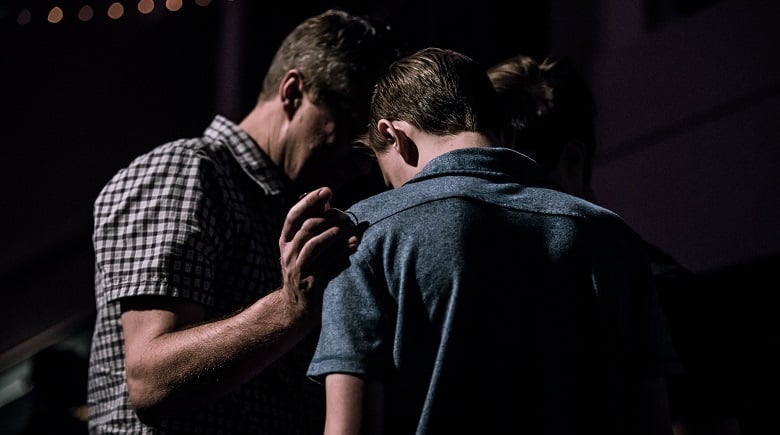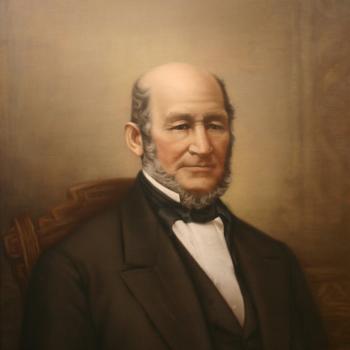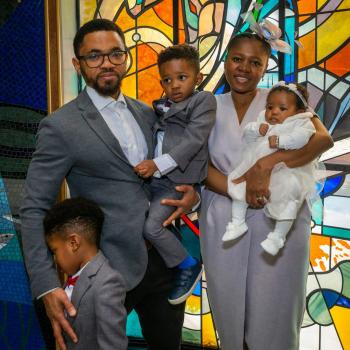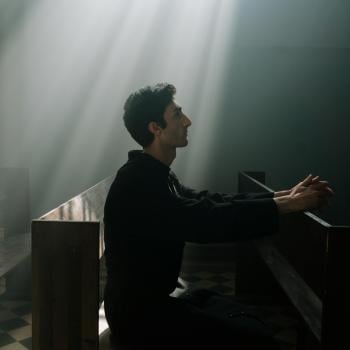In some church contexts, thinking of “church family” is a beautiful thing. In others, it’s dysfunctional and even abusive.

The Family of God
I grew up with the old Gaither song that goes:
You will notice we say ‘brother
and sister’ ’round here-
It’s because we’re a family
and these folks are so near;
When one has a heartache
we all share the tears,
And rejoice in each victory
In this family so dear
I’m so glad I’m a part
Of the family of God
I’ve been washed in the fountain
Cleansed by His blood
Joint heirs with Jesus
As we travel this sod
For I’m part of the family
The family of God
It’s a refrain I’ve heard often. And, as a former pastor, it’s a phrase I’ve used often. But is “church family” the best analogy for the relationship between members of a congregation?
Healthy Church Families
I don’t want to take anything away from those who truly have experienced church as a family. Countless people have gained comfort from the love of genuine church relationships. In a healthy church setting, when people do life together, they form such strong bonds that family language seems appropriate. Sometimes the people at church become your dearest friends.
Often, church folks seem like close family. At other times, they seem like distant relatives, but relatives, nonetheless. When I was young, I felt that way about the kids in my church youth group. Most of them weren’t the sort that I hung out with at school. We were different enough from each other that we weren’t the best of friends. But we saw each other on Sunday mornings and Wednesday nights. We played and prayed together at youth group. It was a relationship more like cousins than siblings. Dating a girl from church was not forbidden, but something about it made it feel mildly incestuous. “I only like you as a friend,” the church girls told me. At the time, it seemed like rejection. In retrospect, it feels like wisdom.
Yes, being part of the family of God did create a bond that was healthy, in my experience. I saw my parents develop quality friendships with other church members. I acquired surrogate grandparents at church. “Grandma and Grandpa” Parrish welcomed us to join their Sunday afternoon family feasts more times than I can count. Later, when I was in ministry, I gained church friends who became like family over the years.
Familiar Titles
Yet, I have also seen the idea of family enforced on churches to the degree that it seemed creepy. In one church I visited, everyone called everyone “Brother or Sister So-and-So.” Like the familiar title was part of their name. It was weird because while I might call my biological “Aunt Debbie” on the phone, I would never call my brother Paul, “Brother Paul.” To do so would seem artificial. While church members might seem like one big family, to actually call people “Brother” and “Sister” as part of their name seems disingenuous to me. If a familiar relationship is there, you don’t have to say it. If it isn’t there, saying it feels false.
Patriarchal Structure
Superimposing some sense of family structure overtop of the church is especially dangerous when it gets tangled up in patriarchy. This is why Jesus said, “Call no one your father on earth, for you have one Father—the one in heaven.” It wasn’t because he despised honorific titles. It was because he was aware of abusive power dynamics that might take place when people believe that a spiritual leader has authority over them.
Patriarchy Protects Itself
One example comes from a story told by a relative of mine. One day, the pastor stopped by her home while her husband was away. During the visit, she said something that the minister disliked, so he slapped her. When her husband learned about the incident, he did nothing about it because, after all, the pastor was the pastor. (See my article, “What does ‘Touch Not the Lord’s Anointed’ Mean?” Too many churches and denominations have been scandalized when patriarchy created situations ripe for physical, sexual, spiritual, and mental abuse. And in the wake of such mistreatment, patriarchy protects itself with inaction, cover-ups, and denials. (See How the Southern Baptist Convention covered up its widespread sexual abuse scandal.)
Are Pastors the Parents of the Church?
I’ve known too many pastors who styled themselves as the parent of the church. This is dangerous for at least four reasons:
- It gives too much power to the patriarchal pastor because of that pastor’s gender.
- It creates codependence in the heart of the matriarchal minister, regardless of that minister’s gender.
- It creates lazy laity, like children who are doted on hand and foot.
- It results in petrified parishioners, who can’t do anything without the permission or approval of their leaders.
A Caution for Pastors
I’d like to share one additional caution for pastors that a seminary professor gave to me. If you are young, don’t allow any older members of the church to take the position of surrogate parent or grandparent for you. Just as a pastor should not have power dynamics over church members, they should not allow their congregants to have a power dynamic over them.
There’s nothing wrong, and everything right, with loving people in your church as if they’re family. The problem comes with superimposing family structures over top of church relationships. This opens up Pandora’s box which makes the church ripe for abuse. Instead of considering the church a family, the Bible gives a better analogy.
The Body of Christ
Jesus said, “Love your neighbor as yourself.” Paul talked about the church being the body of Christ. If you love the members of your church as if they are your hand or your foot or your eye, then you will realize the pain it would cause if you were to lose them. You do everything you can to make sure to keep them healthy. But the foot doesn’t have authority over the eye, nor the eye over the hand. Loving someone as yourself, as your own body, is a better analogy than loving them as family. In fact, it creates an even closer relationship. Maybe it’s best if we take a New Testament approach, understanding Church relationships not as a family, but as a big body—the body of Christ.

















